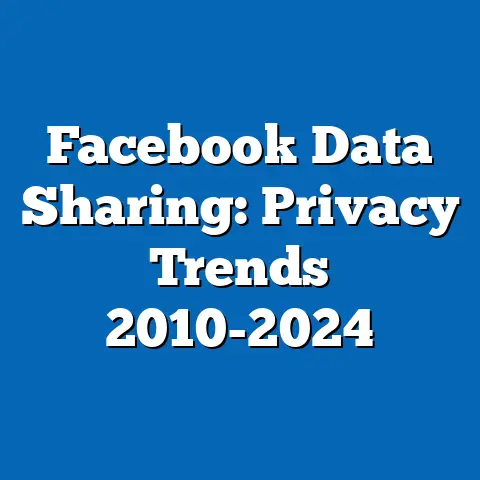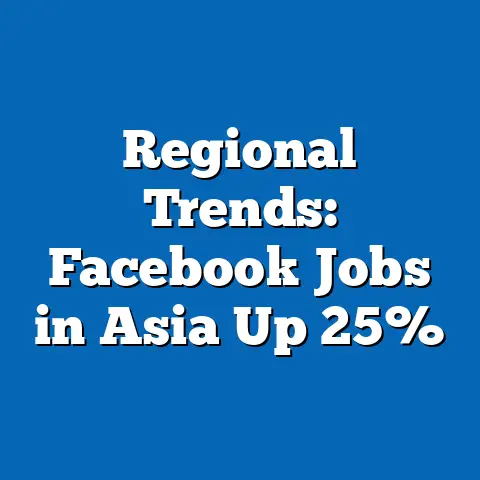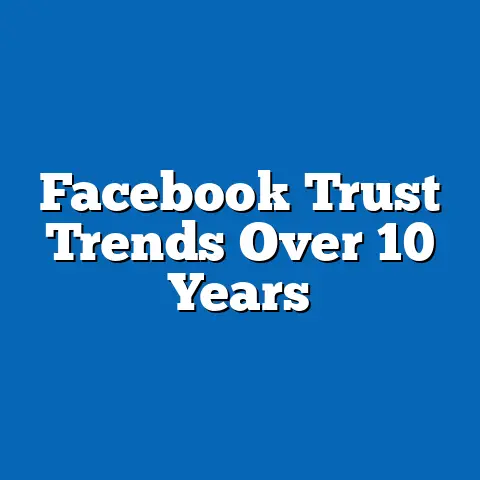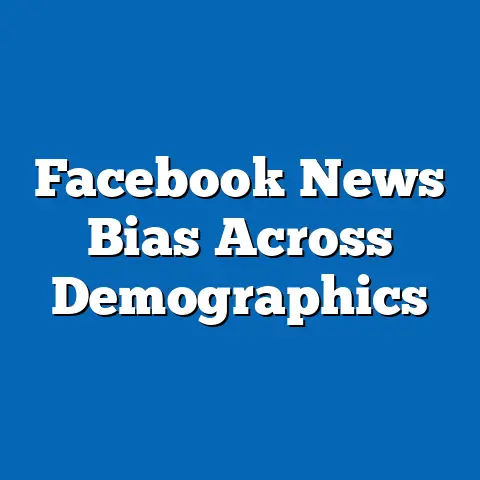Facebook Cambridge Analytica Fallout Analysis
The Cambridge Analytica scandal revealed critical vulnerabilities in the digital ecosystem, exposing how personal data could be weaponized for political manipulation. As we approach 2024, the reverberations of this event continue to influence public discourse, regulatory frameworks, and individual behaviors across generations. This analysis will also consider how these shifts might inform future societal trends, particularly in the realms of technology policy, digital literacy, and civic participation.
Historical Context: The Genesis of a Digital Scandal
The Facebook-Cambridge Analytica scandal emerged as a defining moment in the intersection of technology, politics, and personal privacy. In early 2018, investigative reports by The Guardian and The New York Times revealed that Cambridge Analytica, a political consulting firm, had improperly accessed the personal data of up to 87 million Facebook users. This data was allegedly used to create targeted political advertisements during the 2016 U.S. presidential election and the Brexit referendum in the United Kingdom.
The scandal’s roots trace back to a seemingly innocuous app called “This Is Your Digital Life,” developed by academic researcher Aleksandr Kogan. Through this app, users consented to share their data for research purposes, but the app also harvested information from their friends’ profiles without explicit permission—a practice enabled by Facebook’s lax data-sharing policies at the time. Cambridge Analytica, with ties to political campaigns, exploited this data to build psychographic profiles, aiming to influence voter behavior through microtargeting.
This event unfolded against a backdrop of growing concern over the power of tech giants. The mid-2010s saw increasing scrutiny of companies like Facebook (now Meta), Google, and Amazon, as their dominance raised questions about monopolistic practices, user privacy, and societal influence. The scandal became a flashpoint, crystallizing fears about the unchecked power of social media platforms and their role in democratic processes.
Key Defining Characteristics of the Fallout
The fallout from the Cambridge Analytica scandal is characterized by several key themes that continue to resonate in 2024. First, it exposed the fragility of data privacy in the digital age, revealing how easily personal information could be exploited for purposes beyond users’ control. This breach of trust fundamentally altered how individuals and policymakers view the relationship between technology and personal autonomy.
Second, the scandal highlighted the potential for social media to be weaponized as a tool for political manipulation. The use of psychographic profiling to sway voter opinions raised alarms about the integrity of democratic processes, prompting debates over the ethical boundaries of digital campaigning. This concern remains relevant as political polarization and misinformation campaigns persist.
Third, the event catalyzed a wave of regulatory and public responses aimed at holding tech companies accountable. From the European Union’s General Data Protection Regulation (GDPR), implemented in 2018, to increased calls for antitrust action in the United States, the scandal underscored the need for systemic change in how data is handled. These responses have had varying degrees of success but continue to shape the tech landscape in 2024.
Finally, the fallout has had a profound cultural impact, fostering a generational divide in attitudes toward technology. While younger generations, such as Gen Z, have grown up immersed in digital environments, older generations, like Baby Boomers, often express greater skepticism about the security of their online presence. These differences in perspective are critical to understanding the broader societal implications of the scandal.
Societal Implications: Trust, Policy, and Digital Literacy
The Cambridge Analytica scandal has had far-reaching implications for society, influencing trust in institutions, shaping policy debates, and highlighting the urgent need for digital literacy. At its core, the event eroded public trust in both technology companies and the political systems they intersect with. A 2018 Pew Research Center survey found that 74% of Americans believed major tech companies had too much power and influence, a sentiment that has only grown in subsequent years.
This loss of trust has manifested in changing user behaviors, with many individuals reevaluating their engagement with social media platforms. Some have reduced their online activity or abandoned platforms like Facebook altogether, while others have sought out alternatives that prioritize privacy, such as Signal or Telegram. However, the extent of these behavioral shifts varies across generations, a topic we will explore in greater depth later in this analysis.
From a policy perspective, the scandal has been a catalyst for significant legislative efforts. The GDPR, for instance, set a global standard for data protection, empowering users with greater control over their personal information. In the U.S., while no comprehensive federal privacy law has been enacted as of 2024, individual states like California have implemented measures such as the California Consumer Privacy Act (CCPA). These developments signal a growing recognition of the need to balance technological innovation with individual rights.
Perhaps most critically, the scandal underscored the importance of digital literacy as a societal imperative. Many users were unaware of how their data was being used or shared, highlighting a gap in public understanding of digital ecosystems. Educational initiatives and public awareness campaigns have since emerged, but progress remains uneven, particularly across generational lines. As we move into 2024, the challenge of equipping individuals with the tools to navigate the digital landscape remains a pressing concern.
Generational Responses to the Fallout
Baby Boomers (Born 1946-1964)
Baby Boomers, who often entered the digital world later in life, have exhibited a pronounced wariness toward social media following the Cambridge Analytica scandal. Many in this cohort were already skeptical of technology’s role in their lives, and the revelation of data misuse reinforced their concerns. A 2019 AARP survey found that 62% of Boomers expressed significant worry about online privacy, with many reducing their use of platforms like Facebook.
This generation’s response is also shaped by their historical context, having lived through significant political upheavals such as the Vietnam War and Watergate. These experiences have instilled a deep-seated skepticism of institutional power, whether governmental or corporate. As a result, Boomers are more likely to advocate for stringent regulations on tech companies, viewing them as necessary to protect individual rights.
However, it’s important to note the diversity within this generation. While some Boomers have disengaged from social media, others continue to use it for family connections or news consumption, albeit with heightened caution. Their response reflects a broader tension between the convenience of technology and the risks it poses—a tension that continues to define their digital interactions in 2024.
Generation X (Born 1965-1980)
Generation X, often described as the “latchkey” generation, has navigated the transition from analog to digital worlds, making their response to the Cambridge Analytica fallout particularly nuanced. Having adopted technology during their formative adult years, Gen Xers tend to be pragmatic in their approach to social media, balancing its utility with an awareness of its pitfalls. A 2020 study by the Pew Research Center found that 54% of Gen Xers adjusted their privacy settings on social media platforms post-scandal, a higher rate than Millennials but lower than Boomers.
This generation’s historical context, marked by events like the dot-com boom and the rise of personal computing, has fostered a certain resilience to technological change. However, the scandal tapped into their underlying distrust of large institutions, a sentiment shaped by economic recessions and corporate scandals of the late 20th century. As a result, many Gen Xers have become vocal advocates for transparency in data practices, often bridging the gap between younger and older generations in policy discussions.
In 2024, Gen X continues to occupy a pivotal role in shaping workplace and societal attitudes toward technology. As many hold leadership positions, their decisions around data security and digital ethics are influencing organizational cultures, reflecting a cautious yet adaptive stance toward the post-scandal digital landscape.
Millennials (Born 1981-1996)
Millennials, often dubbed the first “digital natives,” have a complex relationship with the fallout from Cambridge Analytica. Having come of age during the rise of social media, this generation has been deeply integrated into platforms like Facebook, using them for social connection, professional networking, and self-expression. Yet, the scandal struck at a time when many Millennials were becoming more aware of the societal impacts of technology, leading to a reevaluation of their digital habits.
A 2021 survey by Deloitte found that 67% of Millennials expressed concern over how their data was being used, with many taking steps to limit their online footprint. However, unlike Boomers, Millennials are less likely to abandon social media entirely, given its centrality to their personal and professional lives. Instead, they have gravitated toward platforms perceived as more privacy-conscious or have adopted tools like VPNs to protect their data.
The historical context for Millennials includes the 2008 financial crisis and the rapid proliferation of smartphones, events that have shaped their skepticism of institutional promises and reliance on technology for solutions. In 2024, this generation remains at the forefront of digital culture, advocating for ethical tech practices while navigating the practical realities of a hyper-connected world.
Generation Z (Born 1997-2012)
Generation Z, the true digital natives, has grown up in a post-Cambridge Analytica world, where data privacy concerns are a fundamental part of their online experience. Unlike older generations, Gen Z’s formative years were shaped by an awareness of data breaches, misinformation, and digital surveillance, making them both savvy and skeptical of social media platforms. A 2022 study by the National Cyber Security Alliance found that 73% of Gen Z individuals regularly use privacy tools and are more likely to read terms of service agreements than any other generation.
This generation’s response is also influenced by their historical context, including the rise of movements like #DeleteFacebook and broader cultural shifts toward digital activism. Gen Z has witnessed firsthand the power of social media to drive social change, as seen in movements like Black Lives Matter and climate activism, yet they are acutely aware of its potential for harm. Their dual perspective—embracing technology while questioning its ethics—sets them apart from older cohorts.
In 2024, Gen Z continues to push for systemic change in the digital realm, often leading conversations around data rights and platform accountability. Their influence is particularly evident on newer platforms like TikTok, where they prioritize authenticity and community over traditional metrics of engagement, reflecting a broader generational shift in digital values.
Technological, Economic, Social, and Cultural Factors
The fallout from Cambridge Analytica cannot be fully understood without examining the broader technological, economic, social, and cultural factors that have shaped its impact. Technologically, the scandal exposed the vulnerabilities of data-driven business models, where user information is often treated as a commodity. The rapid evolution of artificial intelligence and machine learning since 2018 has only amplified these concerns, as algorithms become more sophisticated in predicting and influencing behavior.
Economically, the scandal highlighted the immense power of tech giants, whose market dominance often outpaces regulatory oversight. Facebook’s parent company, Meta, reported revenues of over $117 billion in 2022, a figure that underscores the financial stakes involved in data collection. This economic reality has complicated efforts to enact meaningful reform, as policymakers grapple with balancing innovation and accountability.
Socially, the scandal has deepened existing divides, particularly around issues of trust and political polarization. The role of targeted ads in amplifying divisive content has contributed to a fragmented public sphere, where echo chambers reinforce ideological differences. This trend, evident in the 2016 election, remains a challenge in 2024, as social media continues to shape political discourse.
Culturally, the fallout has sparked a reevaluation of what it means to live in a digital society. Concepts like “digital detoxing” and “data minimalism” have gained traction, reflecting a growing desire to reclaim agency over one’s online presence. These cultural shifts vary across generations but collectively signal a broader reckoning with the societal costs of unchecked technological growth.
Nuances and Diversity Within Generational Responses
While generational analysis provides valuable insights, it is critical to acknowledge the diversity within each cohort. Not all Baby Boomers are technophobic, just as not all Gen Z individuals are digital activists. Factors such as socioeconomic status, education, and geographic location play significant roles in shaping attitudes toward data privacy and technology.
For instance, urban Millennials may have greater access to digital literacy resources compared to their rural counterparts, leading to differences in how they respond to privacy concerns. Similarly, cultural background can influence trust in institutions, with marginalized communities often expressing greater skepticism due to historical experiences of surveillance and discrimination. These nuances remind us that generational trends are not monolithic and must be contextualized within broader social dynamics.
Qualitative and Quantitative Research Findings
Qualitative research, including user interviews and focus groups, reveals a pervasive sense of betrayal among social media users post-Cambridge Analytica. Many express feeling “violated” by the misuse of their data, a sentiment that cuts across generational lines but is particularly acute among those who were previously unaware of data-sharing practices. These emotional responses underscore the psychological toll of the scandal, which extends beyond policy debates to personal experiences of trust and agency.
Quantitatively, studies show a measurable shift in behavior and attitudes. A 2023 report by Statista found that global social media usage has plateaued since 2018, with privacy concerns cited as a primary reason for reduced engagement. Additionally, regulatory fines and lawsuits related to data breaches have cost companies like Meta billions of dollars, signaling a financial as well as reputational impact. These figures highlight the tangible consequences of the fallout, which continue to unfold in 2024.
Implications for Society, Culture, and the Workplace
The Cambridge Analytica fallout has profound implications for society, culture, and the workplace, many of which are still evolving. Societally, it has intensified calls for digital rights, positioning data privacy as a fundamental issue akin to freedom of speech or assembly. This shift is evident in public support for legislation like the GDPR, as well as grassroots movements advocating for user empowerment.
Culturally, the scandal has contributed to a growing “privacy paradox,” where individuals value their data security yet continue to use platforms that compromise it. This tension is particularly pronounced among younger generations, who are caught between the allure of digital connectivity and the risks it entails. Resolving this paradox will require cultural as well as technological solutions, a challenge that remains unresolved in 2024.
In the workplace, the fallout has prompted organizations to prioritize data security and ethical tech practices. Companies are increasingly investing in cybersecurity training and transparent data policies, driven in part by generational demands for accountability. Gen X and Millennial leaders, in particular, are shaping workplace cultures that emphasize digital responsibility, a trend likely to intensify as Gen Z enters the workforce in greater numbers.
Forward-Looking Insights and Uncertainties
As we look toward the future in 2024 and beyond, the legacy of the Cambridge Analytica scandal remains a critical lens through which to understand generational and societal dynamics. On one hand, the increased focus on data privacy and platform accountability suggests a path toward greater user empowerment. Emerging technologies, such as decentralized data systems and blockchain, offer potential solutions for securing personal information, though their adoption remains limited.
On the other hand, significant uncertainties persist. The rapid pace of technological change, coupled with the global nature of digital platforms, poses ongoing challenges for regulation and enforcement. Political will to enact comprehensive reforms varies widely, and the influence of tech lobbying cannot be underestimated. Additionally, the rise of new threats, such as deepfakes and AI-driven misinformation, suggests that the issues raised by Cambridge Analytica are far from resolved.
Generational attitudes will continue to play a pivotal role in shaping these outcomes. While Gen Z’s advocacy for digital rights offers hope for systemic change, the entrenched habits of older generations and the economic power of tech giants may slow progress. Ultimately, the path forward will require a collaborative effort across age groups, sectors, and borders—a daunting but necessary endeavor.
Conclusion
The Facebook-Cambridge Analytica scandal remains a defining moment in the digital age, with implications that continue to unfold in 2024. By examining its historical context, key characteristics, and societal impacts, this analysis has highlighted the complex interplay of trust, policy, and generational perspectives in shaping the post-scandal landscape. From Baby Boomers’ skepticism to Gen Z’s activism, each generation brings unique experiences and priorities to the table, reflecting the diversity of responses to a shared crisis.
As we navigate the uncertainties of the future, the lessons of Cambridge Analytica serve as a reminder of the stakes involved in the digital era. Balancing innovation with accountability, convenience with privacy, and connectivity with security will be among the defining challenges of the coming decade. While the path ahead is far from certain, fostering dialogue and understanding across generations offers a starting point for building a more ethical and equitable digital society.






